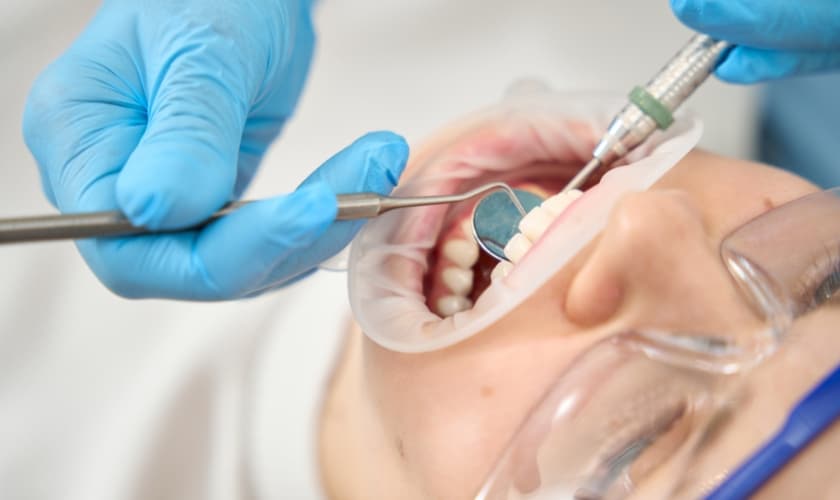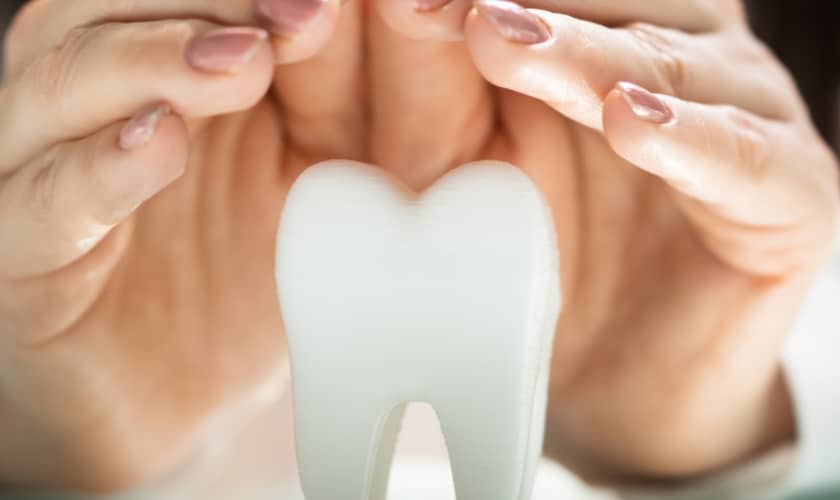Thinking about getting dental implants? You’re not alone! More and more people are turning to dental implants as a permanent solution for missing teeth. However, with the growing popularity of this procedure, there are also many myths circulating that may leave you feeling uncertain or misinformed. That’s why we’re here to set the record straight! In this blog post, we will debunk four common myths about dental implants so that you can make an informed decision about your oral health. So let’s dive in and separate fact from fiction when it comes to dental implants!
Dental implants are not a lifetime commitment
One of the most common myths about dental implants is that once you get them, they are a lifetime commitment. While it is true that dental implants are designed to be a long-term solution for missing teeth, it’s important to understand that they may not last forever.
Dental implants consist of three main components: the implant fixture, the abutment, and the crown. The implant fixture is surgically placed into your jawbone and serves as an artificial tooth root. The abutment connects the implant fixture to the crown, which is custom-made to match your natural teeth.
While dental implants are known for their durability and strength, there are factors that can affect their lifespan. Poor oral hygiene habits or neglecting regular dental visits can lead to complications such as infection or gum disease, which can compromise the integrity of the implant.
Additionally, lifestyle habits like smoking or grinding your teeth can also impact the longevity of your dental implants. These behaviors put unnecessary stress on both natural teeth and implants alike.
It’s important to keep in mind that while dental implants may not last a lifetime, they still offer numerous benefits compared to other tooth replacement options. They provide stability and function similar to natural teeth and have a success rate of over 95%.
Maintaining good oral hygiene practices including brushing twice daily with a soft-bristled brush and flossing regularly will help prolong the life of your dental implants. Regular check-ups with your dentist will allow them to monitor any changes or issues early on so they can be addressed promptly.
Remember, although not entirely permanent, dental implants remain an excellent choice when it comes to restoring your smile and improving your overall quality of life
Dental implants do not require regular dental visits
Dental implants have become a popular solution for replacing missing teeth. One common myth surrounding dental implants is that once they are placed, you no longer need to visit the dentist regularly. However, this is not entirely true.
While dental implants are designed to be a long-term solution, they still require proper care and maintenance. Regular dental visits are essential to ensure the health and stability of your implant. Your dentist will examine your implant and surrounding tissues, clean any plaque or tartar buildup, and make sure everything is functioning properly.
In addition to regular check-ups, it’s crucial to maintain good oral hygiene at home. Brushing twice a day with a soft toothbrush and flossing daily will help prevent bacteria from causing gum disease or infection around the implant.
Regular visits to the dentist also allow early detection of any potential issues with your implant. If problems such as bone loss or loose screws are identified early on, they can be addressed promptly before further complications arise.
Remember, taking care of your dental implant involves more than just brushing and flossing at home. It’s important to schedule regular dental visits so that your dentist can provide professional care and guidance specific to your unique needs.
So while dental implants can offer many benefits for restoring your smile, it’s crucial not to neglect regular dental visits as part of maintaining their longevity and ensuring optimal oral health.
Source: Gary R. O’Brien
Dental implants are not permanent
Dental implants are often hailed as a long-lasting solution to missing teeth, but it’s important to dispel the myth that they are permanent. While dental implants can provide a durable and stable replacement for natural teeth, they are not immune to wear and tear over time.
Just like natural teeth, dental implants can be subject to damage or deterioration due to factors such as poor oral hygiene, trauma, or underlying medical conditions. This means that regular maintenance and care are essential to ensure the longevity of your dental implant.
It’s crucial to maintain good oral hygiene practices by brushing and flossing regularly and visiting your dentist for routine check-ups. These visits allow your dentist to assess the health of your implant and identify any issues before they become more serious.
Additionally, lifestyle habits such as smoking or excessive alcohol consumption can also impact the lifespan of dental implants. These habits contribute to gum disease and bone loss around the implant site, potentially leading to implant failure if not addressed.
While dental implants have an impressive success rate, it’s important to understand that they may require adjustments or replacements over time. By staying proactive with your oral health and seeking professional guidance when needed, you can maximize the lifespan of your dental implant and enjoy its benefits for years to come.
Dental implants cannot be reversed
Dental implants have become a popular solution for those who are missing teeth or want to improve their smile. However, there are some misconceptions about dental implants that need to be addressed. One common myth is that dental implants cannot be reversed.
Contrary to this belief, dental implants can indeed be removed if necessary. While the process may not be as simple as removing dentures or bridges, it is possible for a dentist to remove an implant if there are any complications or if the patient decides they no longer want it.
The removal of a dental implant involves carefully loosening and unscrewing it from the jawbone. This procedure must be done by a qualified professional to ensure minimal damage and preserve the surrounding structures.
It’s important to note that while removal is possible, it should not be taken lightly. Dental implants are designed to fuse with the jawbone through a process called osseointegration, which makes them stable and long-lasting. Removing an implant should only occur in rare cases where it is absolutely necessary.
Despite what some may believe, dental implants can indeed be reversed if needed. However, due to their integration with the jawbone and the complex nature of removal, it should only be considered as a last resort option under specific circumstances.
Dental Implants: What You Should Know
Now that we have debunked some common myths about dental implants, it’s important to have a clear understanding of what you should know when considering this tooth replacement option.
First and foremost, dental implants are a fantastic solution for restoring both the functionality and aesthetics of your smile. They offer a long-lasting and natural-looking alternative to missing teeth. However, it’s essential to remember that they are not a lifetime commitment. While they can last for many years with proper care, regular check-ups with your dentist are still necessary to ensure their longevity.
Contrary to popular belief, dental implant maintenance does require regular visits to the dentist. These appointments allow your dentist to monitor the condition of your implants and address any potential issues early on. Just like natural teeth, implants can accumulate plaque and tartar if not properly cleaned. Regular professional cleanings will help keep them in optimal condition.
Although dental implants provide a durable solution for replacing missing teeth, they are not permanent fixtures in your mouth. Over time, the bone around the implant may change or resorb, which can affect its stability. This is why periodic evaluations by your dentist are crucial – so any necessary adjustments or treatments can be done promptly.
It’s important to note that once you have received dental implants, reversing the procedure is not possible without surgical intervention. Dental implants involve placing titanium posts into the jawbone as anchors for artificial teeth – this fusion creates a strong bond between implant and bone over time. Removing or reversing this process would require complex surgery and may result in further damage or complications.





